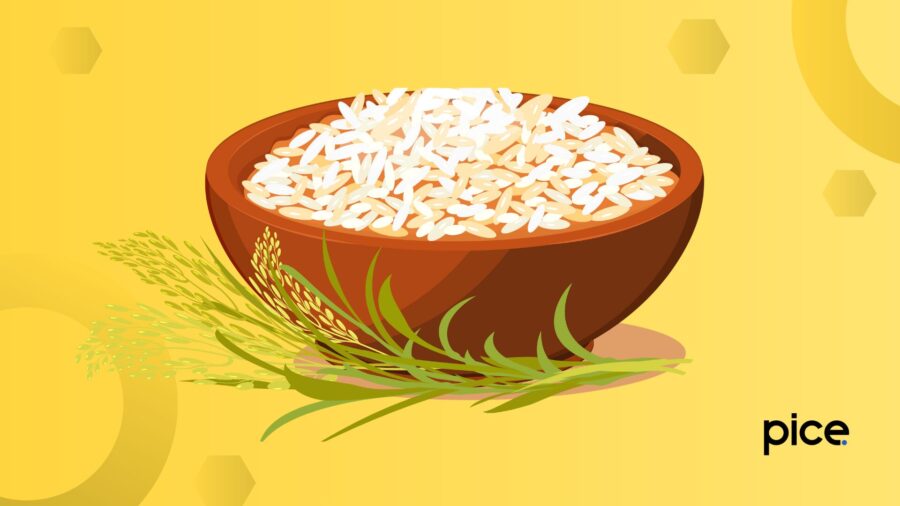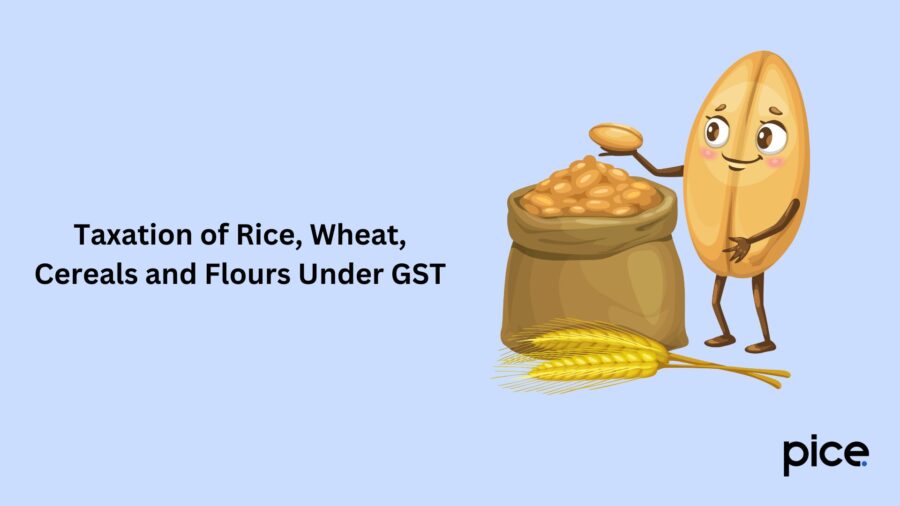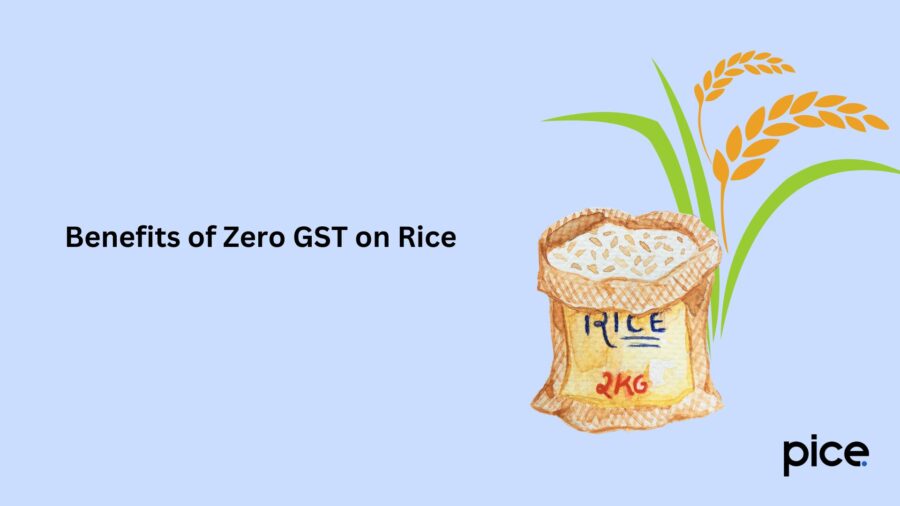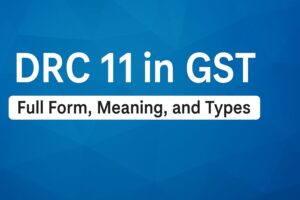GST on Rice, Wheat, Cereals and Flour Explained
- 25 Oct 24
- 6 mins

GST on Rice, Wheat, Cereals and Flour Explained
Key Takeaways
- Unbranded staples like rice and wheat are GST-exempt, while branded items attract 5%.
- HSN codes help ensure accurate GST rates for cereals and grains.
- Exports of cereals are zero-rated, enabling input tax credit claims.
- Processed cereals have GST rates from 5% to 18%, impacting pricing.
- Zero GST on essential foods aids affordability for low-income consumers.
Goods and Services Tax brought changes to the taxation structure of essential commodities like rice, wheat, cereals and flour in India. These items form a major part of the staple Indian diet. While basic food grains are exempt from GST, processed and packaged items are subject to taxes.
In this blog, we will discuss GST on rice, cereals, flour and wheat under GST, the significance of HSN codes, the benefits of zero-rate and other related aspects.
Taxation of Rice, Wheat, Cereals and Flours Under GST

Essentials like rice, wheat, flour and cereals under GST are either exempt from taxation or attract a GST rate of 5%. For instance, wheat, rice and cereals (unbranded) are exempt from Goods and Services Tax. This makes such items more affordable and accessible to consumers. These items, on the other hand, are subject to a 5% GST rate if they are branded. Branding often leads to the addition of value and in turn results in a higher tax rate.
This taxation structure remains the same for flour, cereal, wheat or rice. If the variant is unbranded, it will be exempt to maintain affordability for the general public. If it is a branded variant, the items will be subject to a 5% tax. This structure ensures that there is a balance between the generation of tax revenue and maintaining the affordability of essential commodities.
Significance of HSN Codes
The Harmonised System of Nomenclature (HSN Code) is highly significant for categorising products for trading and taxation. It helps to ensure accuracy and uniformity in the process of tax assessment. HSN Codes represent certain product categories and also help businesses determine correct GST rates.
These are the HSN codes for rice, wheat, barley and other cereals:
- Rice:
Product Description: Rice husked (rough or paddy); rice semi-milled or wholly-milled rice, whether or not polished or glazed; rice Broken Rice.
HSN Code: 1006
- Wheat:
Product Description: Wheat and meslin (a mixture of wheat and rye)
HSN Code: 1001, 1008, 1101, 1102, 1109
- Barley:
Product Description: Barley
HSN Code: 1003
- Other Cereals (e.g., maize, oats, millets, etc.):
Product Description: Oats, cereals and maize (corn).
HSN Code: 1004
GST Rates for Rice, Wheat, Barley and Other Cereals in India
Goods and Services Tax Rates for cereals, rice, wheat, barley, etc. in India are:
- Rice:
Branded rice that you pack and sell under a particular brand name attracts a GST of 5%.
Unbranded rice that you do not pack and sell under a particular brand name does not attract any GST. It falls under the tax slab of 0%.
- Wheat:
Wheat, irrespective of whether it is branded or unbranded, falls under the tax slab of 0%. It does not attract any GST.
- Barley:
Barley, like rice, falls under the tax slab of 5% under the Goods and Services Tax.
- Other Cereals (e.g. maize, oats, millets, popcorn, etc.):
Other cereals like oats, maize, popcorn, and millet also fall under the tax slab of 5%.
It is important to remember that these rates are subject to change, with respect to the Indian Government notifications and policies.
Special Cases and Exemptions
There are some special cases and exemptions where the GST rate varies:
1. Zero-rated Supplies for Export:
Cereals which you export from India will be zero-rated supplies. Goods and Services Tax will not apply to these exports. However, you can claim an input tax credit or a refund of the GST payment on input services.
2. GST on Processed Cereals:
The applicable rates of GST on processed cereals such as rice products, and wheat flour fall in the range of 5% and 18%. This depends on the branding and packaging of cereals.
3. Composite Scheme for Small Traders:
Small traders with an annual turnover less than the specific threshold can register under the Composition Scheme. Composite dealers are required to make a GST payment at a lower rate (1%, in most cases) on annual turnover. This in turn significantly reduces tax burden and helps to maintain compliance.
Benefits of Zero GST on Rice

There are multiple benefits of a zero GST rate on rice. Some of them are:
- A zero GST rate on rice helps farmers by reducing the burden of additional taxes. This results in the farmers selling products at accurate prices.
- A zero GST rate on rice is also beneficial to consumers with low income. This rate of GST ensures not only affordable prices of rice but also accessibility to all consumers.
Impact of GST on Processed Rice Products
The impact of GST on processed rice products is:
- These rice products like rice bran, rice flour, etc. attract a higher GST rate than raw rice. A GST rate of 5% is applicable on such products.
- A higher tax rate on such products will increase the price of these products and, in turn, reduce their demand in the market. In addition to this, this can reduce the profitability of businesses which produce and sell processed rice items.
Conclusion
The structure of GST on rice, cereals, wheat and flour ensures a balance between affordability, accessibility and generating revenue. Understanding the benefits, exemptions, GST rates, and HSN codes helps businesses, producers, retailers, and consumers maintain compliance and cost-efficiency in the supply chain.
💡If you want to streamline your payment and make GST payments, consider using the PICE App. Explore the PICE App today and take your business to new heights.
 By
By 

















